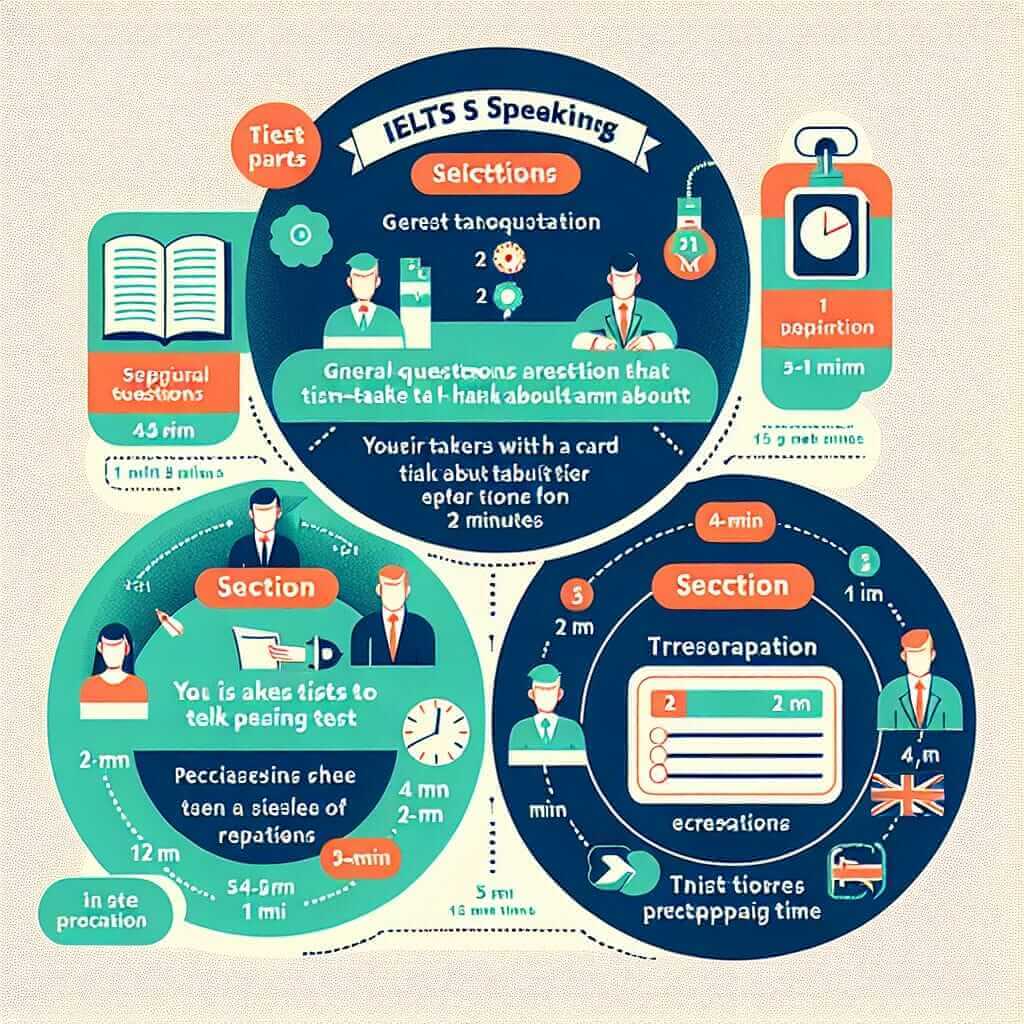The IELTS Speaking test often feels like the most nerve-wracking section for many candidates. It’s the only part where you face an examiner directly and engage in real-time conversation. Understanding its format and duration is crucial for effective preparation. So, how long is the speaking test for IELTS? Let’s delve into the details and equip you with the knowledge to conquer this section confidently.
Demystifying the IELTS Speaking Test Duration
The IELTS Speaking test lasts for 11-14 minutes, irrespective of whether you’re taking the IELTS Academic or IELTS General Training module. This duration is consistent across all test centers globally.
Breaking Down the Speaking Test Timeline
The test is divided into three parts, each with a specific time allocation:
Part 1: Introduction & Interview (4-5 minutes)
- The examiner will introduce themselves and verify your identity.
- You’ll then answer general questions about familiar topics like your hobbies, hometown, or work/studies.
Part 2: Individual Long Turn (3-4 minutes)
- You’ll receive a cue card with a topic and some prompts.
- You’ll have 1 minute to prepare your thoughts and can jot down notes.
- You’ll then speak for 1-2 minutes on the given topic.
- The examiner might ask 1-2 follow-up questions.
Part 3: Two-Way Discussion (4-5 minutes)
- This section involves a deeper discussion related to the topic in Part 2.
- The examiner will engage you in a more analytical and abstract conversation, exploring your opinions and reasoning.

Why Knowing the Test Duration Matters
Understanding the speaking test duration is vital for your preparation and performance. Here’s why:
- Time Management: By being aware of the time limits for each part, you can practice delivering concise and well-structured responses within the given timeframe.
- Reducing Anxiety: Knowing what to expect can alleviate test-day anxiety, allowing you to focus on expressing yourself clearly and fluently.
- Strategic Preparation: You can tailor your practice sessions to simulate the actual test environment, working with a timer and replicating the time constraints of each part.
Example IELTS Speaking Test Questions
To illustrate the test format, here are some sample questions:
Part 1:
- “What kind of music do you enjoy listening to?”
- “Tell me about the place you grew up in.”
Part 2:
Topic: Describe a memorable journey you have been on.
Prompts:
- Where did you go?
- Who did you travel with?
- What made this journey memorable?
Part 3:
- “What are the benefits of traveling to different countries?”
- “How can tourism impact local cultures?”
Tips to Excel in Your IELTS Speaking Test
- Practice Regularly: Engage in mock speaking tests with a teacher or language partner to improve your fluency and coherence.
- Expand Your Vocabulary: Enrich your lexicon with a wide range of words and phrases to express yourself effectively.
- Focus on Fluency and Coherence: Aim to speak naturally and connect your ideas logically.
- Don’t Memorize Answers: Respond authentically and spontaneously to demonstrate your genuine communication skills.
- Use the Preparation Time Wisely: Jot down key points during the 1-minute preparation time in Part 2 to structure your response.
- Maintain Eye Contact and Body Language: Engage with the examiner through confident body language and maintain appropriate eye contact.
Conclusion
Mastering the IELTS Speaking test requires not just language proficiency, but also a firm grasp of the test format and duration. By understanding the structure and time limits of each part, and by implementing the tips provided, you can confidently approach the test and achieve your desired band score. Remember, consistent practice and focused preparation are key to success in the IELTS Speaking test. Good luck!